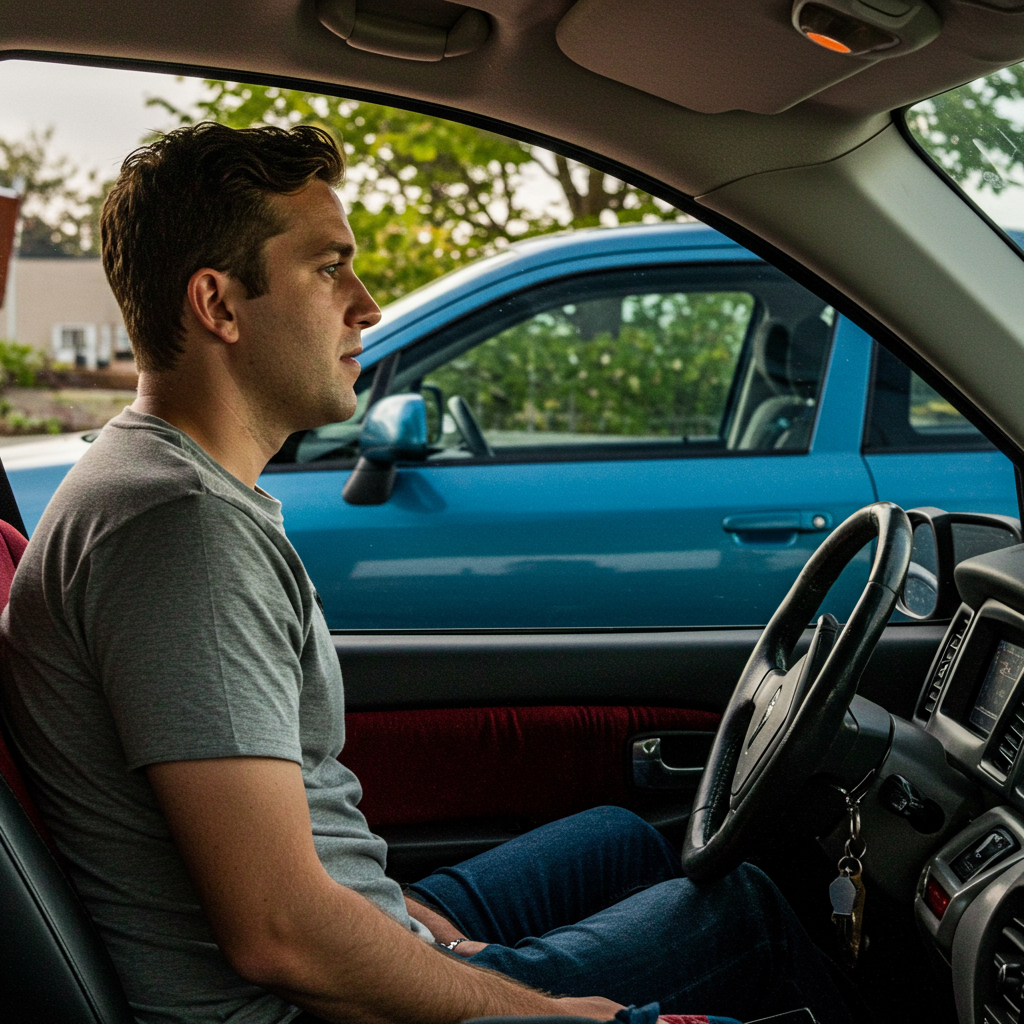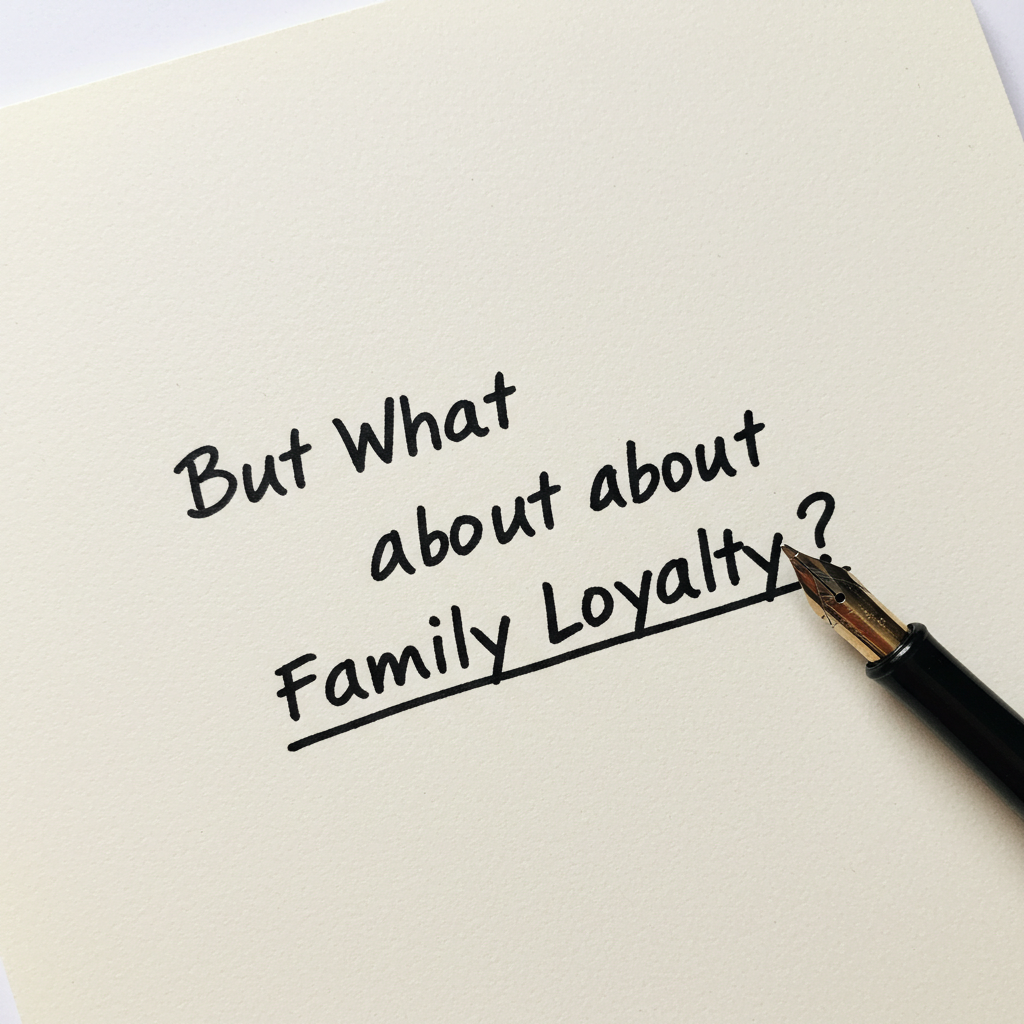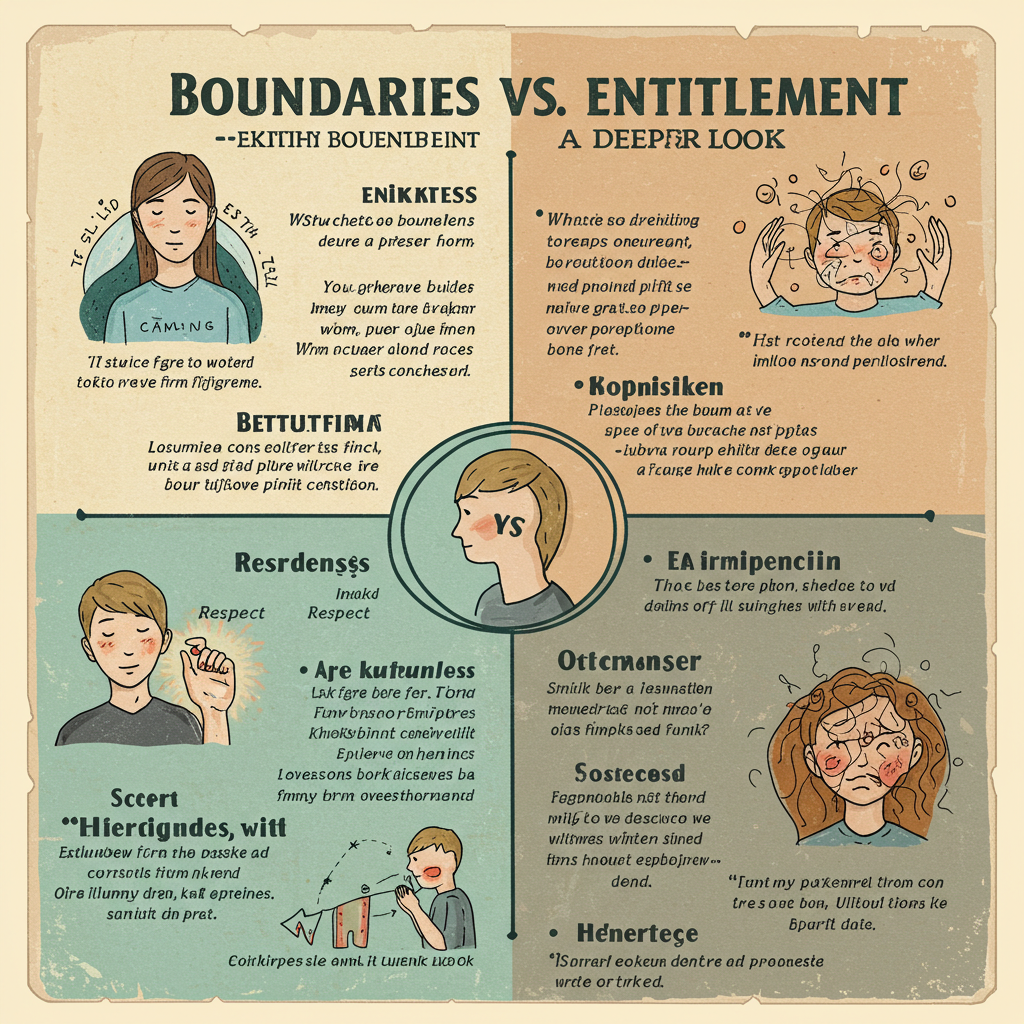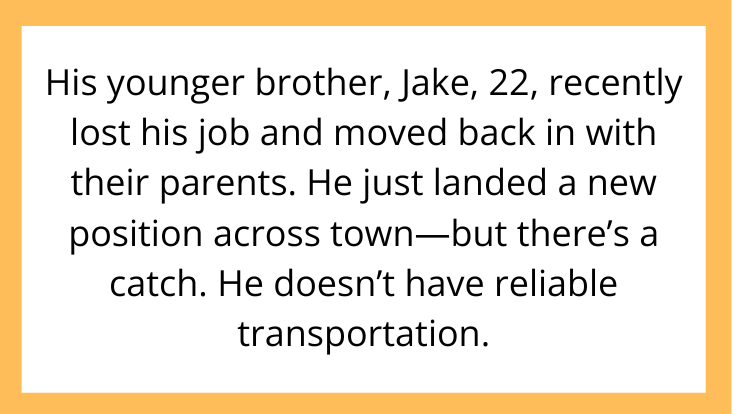AITAH for Refusing to Lend My Car to My Brother Even Though He Says He Needs It for Work?
When it comes to family and favors, things can get complicated fast. Especially when one person feels entitled to something you’ve worked hard for. In today’s AITAH scenario, a car becomes the battleground—and the internet is divided on who’s really in the wrong.
Let’s dig into the story.
The Situation: One Car, Two Very Different Perspectives

The original poster (we’ll call him Mark), a 26-year-old who works full-time and lives alone, shared his dilemma on r/AITAH. Two years ago, Mark saved up and bought a reliable used car he depends on to get to work and manage daily errands.
His younger brother, Jake, 22, recently lost his job and moved back in with their parents. He just landed a new position across town—but there’s a catch. He doesn’t have reliable transportation.
So he called Mark and said, “I need to borrow your car for a few weeks until I can save up for my own.”
Mark said no.
Drawing the Line: Why Mark Refused

Mark’s reasons were clear:
-
He needs his car to get to work and pay his bills.
-
He’s not comfortable lending it because it’s his only vehicle.
-
Jake has a history of being careless with other people’s things.
-
He doesn’t want the stress of worrying about damage, tickets, or insurance issues.
He offered to help Jake look into public transit options or even give him rides when possible. But Jake was furious.
Jake called Mark selfish and said he was “actively preventing him from getting back on his feet.” Their parents sided with Jake, saying Mark should help “because that’s what family does.”
Feeling guilty but also frustrated, Mark turned to Reddit to ask: AITAH for saying no to lending my car?
The Internet Responds: Who’s the Real Villain Here?

Reddit’s r/AITAH community didn’t hold back, and most people agreed: Mark is not the villain.
Why Mark Isn’t the Villain
-
It’s His Property: Nobody is obligated to hand over their car just because someone asks.
-
Past Behavior Counts: Jake’s track record of carelessness is a legitimate reason for hesitation.
-
It’s a Huge Responsibility: Lending a car means liability, wear and tear, and potential accidents.
-
Offering Alternatives: Mark wasn’t unwilling to help—he just set a boundary on what kind of help he could give.
One commenter summed it up:
“A car isn’t a sweater you can just loan out. If something happens, it’s your insurance, your bills, your headache.”
But What About Family Loyalty?

While most comments supported Mark, a few people empathized with Jake’s situation.
-
Transportation is a Barrier: Without a car, it’s much harder to get and keep a job.
-
Family Obligation: Some cultures and families strongly believe in doing whatever it takes to help each other.
-
Temporary Solution: Jake claimed it was only for a few weeks, not forever.
Even those sympathetic to Jake agreed, though, that guilt-tripping a sibling crosses a line.
Boundaries vs. Entitlement: A Deeper Look

This conflict isn’t just about a car—it’s about expectations and boundaries.
When you set a limit that disappoints someone, it doesn’t automatically make you the villain. In fact, a healthy family dynamic allows space for:
-
Saying “no” without punishment.
-
Respecting each other’s property.
-
Finding creative solutions instead of demanding sacrifices.
Mark’s boundary is about protecting his livelihood. If he doesn’t have his car, he could lose his own job. That’s not selfish—that’s survival.
Could There Have Been a Compromise?

A few commenters offered ideas that might have avoided the fallout:
-
Coordinating Rides: Mark could agree to drive Jake to work and back for a set period.
-
Short-Term Rentals: If affordable, Jake could look into weekly car rentals or rideshares.
-
Public Transit: While not always convenient, many cities have buses or trains.
-
Parental Help: Since their parents are so invested, they could help cover transportation costs.
But at the end of the day, none of these options require Mark to hand over his keys.
The Takeaway: Saying No Doesn’t Make You a Villain

If you’ve ever had to set a boundary with a loved one, you know how heavy the guilt can feel. But boundaries protect both parties: the person holding the line and the person learning to respect it.
Mark didn’t say he wouldn’t help. He said he couldn’t help in that specific way. That distinction matters.



